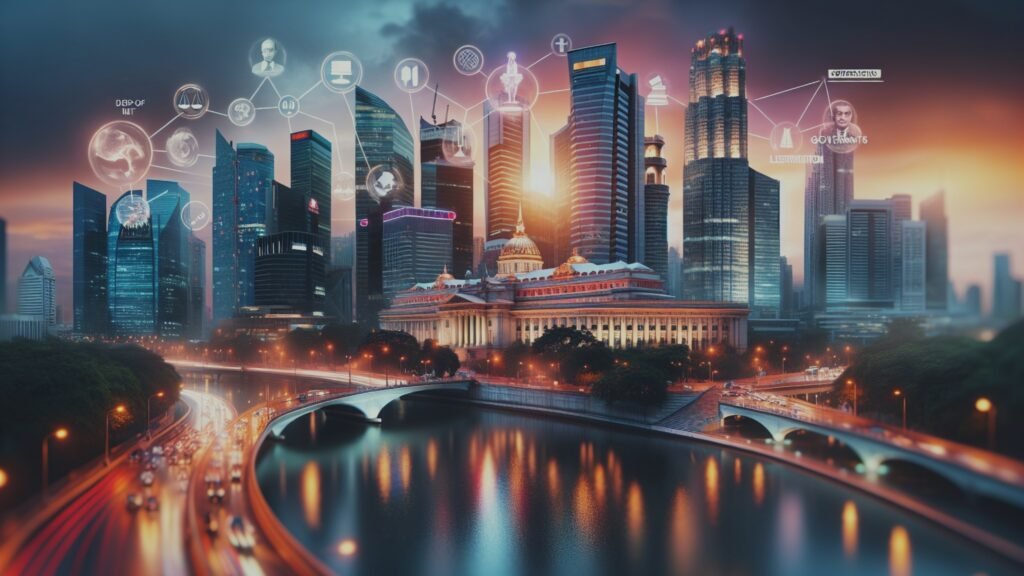Dubai is embarking on an ambitious infrastructure expansion that will significantly reshape its transportation network. The Roads and Transport Authority (RTA) has unveiled a comprehensive plan to execute 57 major road projects by 2027, with 226 kilometers of new roads and 115 bridges and tunnels slated for construction. With a total investment of AED 16 billion, this initiative aims to address growing demand, reduce congestion, and improve overall travel efficiency for the city’s residents and businesses.
Project Overview: A Vision for the Future of Mobility
Dubai’s infrastructure development is not just about improving roads—it’s about creating an integrated transport system designed to meet the challenges of a rapidly growing urban center. By enhancing the city’s road network, the RTA aims to deliver smoother traffic flow, shorter travel times, and greater accessibility for residents and visitors alike.
Key Statistics:
- 226 km of upgraded and new roads
- 115 bridges and tunnels
- 57 major projects to be completed by 2027
- Investment: AED 16 billion
- Completion Timeframe: 2024-2027
Notable Road Projects and Developments
1. Umm Suqeim and Al Qudra Corridor
- Current Progress: 50% complete
- Impact: Travel time will be reduced from 46 minutes to just 11 minutes
- Project Scope: This 16 km corridor will involve the construction of 4 major intersections, 2.5 km of bridges, and 2 km of tunnels, which will dramatically ease access between the rapidly developing residential areas and the more central parts of the city.
- Purpose: By enhancing connectivity and reducing bottlenecks, this project aims to ease congestion and provide smoother access to key destinations across Dubai.
2. Hessa Street Upgrade
- Current Progress: 60% complete
- Impact: Travel time will be slashed from 30 minutes to just 7 minutes
- Key Features: This upgrade will double the traffic capacity of Hessa Street, benefiting over 640,000 residents. It will also introduce dedicated cycling lanes and e-scooter tracks, reflecting Dubai’s commitment to sustainability and promoting alternative modes of transportation.
- Purpose: The upgrade will ensure that Hessa Street can accommodate increasing traffic volumes while providing more sustainable commuting options for residents.
3. Al Mustaqbal Street & Trade Centre Roundabout
- Scope: The project spans 6.2 km and includes extensive bridge and tunnel work.
- Traffic Flow Enhancement: This development will increase road capacity by 30%, while reducing travel times from 8 minutes to 3.5 minutes for commuters traveling between key commercial and residential zones.
- Goal: This project aims to improve accessibility to central Dubai, enhancing connections between the city’s core commercial districts and surrounding areas.
4. Latifa bint Hamdan Street
- Project Length: 12.2 km, including 8.1 km of elevated road sections.
- Expected Impact: This vital corridor will service over 1 million residents, providing enhanced connectivity to residential and commercial areas and increasing traffic capacity by 16,000 vehicles per hour.
- Purpose: This upgrade will support the growing population in the city’s peripheral areas while improving access to the city’s core.
5. Meydan Road Expansion
- Scope: The 10.6 km expansion includes 3.3 km of bridges and 1.5 km of tunnels.
- Impact: Travel times from Umm Suqeim Street to Meydan area will be reduced to just 4 minutes.
- Objective: To improve accessibility to the expanding Meydan area, a significant hub for both residential and commercial growth.
Smart Mobility and Sustainable Features
Dubai’s focus on intelligent, sustainable urban mobility is evident in these new projects. The RTA is integrating cutting-edge technologies and eco-friendly designs to future-proof the city’s transport network.
Trackless Trams
Incorporating autonomous electric-powered trams, these will operate on virtual tracks and serve several strategic corridors. This initiative will reduce congestion, improve traffic flow, and offer a zero-emission solution for urban mobility.
Autonomous Buses
AI-powered buses are being introduced to support last-mile connectivity, ensuring that commuters can easily transition from major roads to their final destinations without the need for private cars. These buses will play a crucial role in reducing carbon emissions and traffic congestion.
Dedicated Bus and Taxi Lanes
An additional 13 km of exclusive lanes for buses and taxis will enhance public transport efficiency, significantly reducing travel times by up to 41%. This initiative supports Dubai’s broader vision to promote public transport as a viable, efficient, and sustainable option for residents and visitors.
Cycling and E-Scooter Tracks
To encourage healthier and more sustainable transport options, dedicated cycling lanes and e-scooter tracks will be integrated into key roads such as Hessa Street. These features will help reduce traffic congestion and encourage residents to adopt environmentally friendly commuting alternatives.
Long-Term Impact and Vision
The RTA’s comprehensive road development plan is set to bring about transformative changes to the city’s urban landscape. Not only will these projects enhance the livability and mobility for millions of residents, but they will also stimulate economic growth, real estate development, and the tourism sector.
The project is a direct response to the rapidly growing population and expanding business districts in Dubai. By reducing congestion, increasing road capacity, and introducing sustainable transport solutions, Dubai is reinforcing its position as a global hub for innovation and urban development.
Key Benefits:
- Improved accessibility to and within the city
- Shorter commute times and enhanced mobility for residents and businesses
- Increased road capacity to accommodate future growth
- Promotion of green mobility through sustainable infrastructure
- Support for real estate development in newly connected areas
Conclusion: A New Era of Urban Connectivity
As Dubai continues to grow into a global smart city, the 226 km of roads and 115 bridges and tunnels being constructed in the next two years will significantly elevate the city’s infrastructure and mobility systems. The plan exemplifies Dubai’s forward-thinking approach to urban development, creating a connected, sustainable, and highly efficient city.
These improvements will not only benefit current residents but will also open up numerous opportunities for real estate investors, businesses, and tourists alike, making Dubai an even more attractive place to live, work, and visit.



